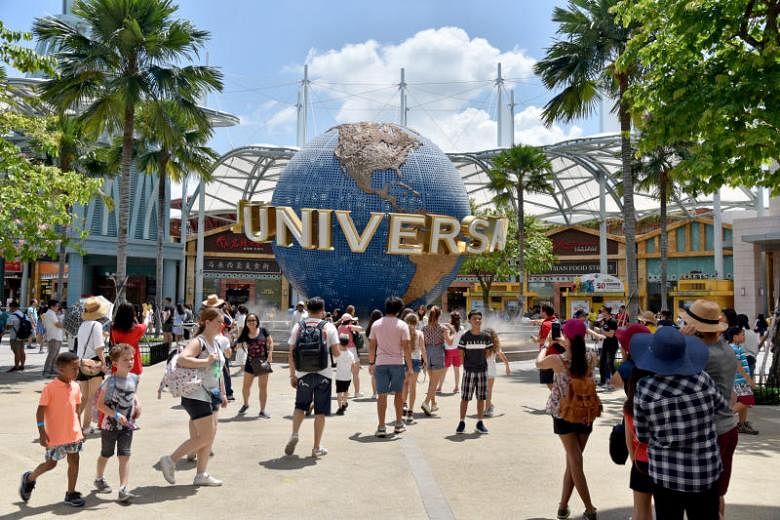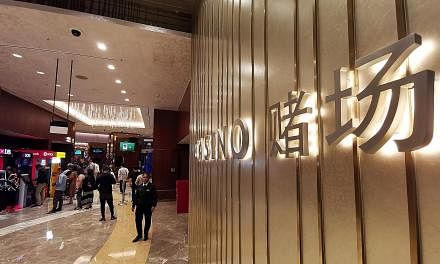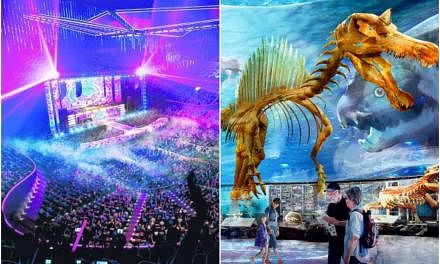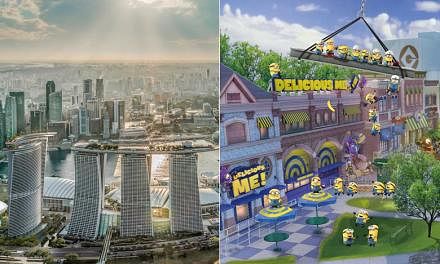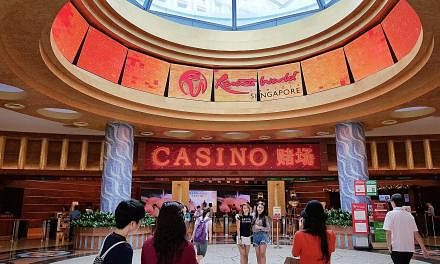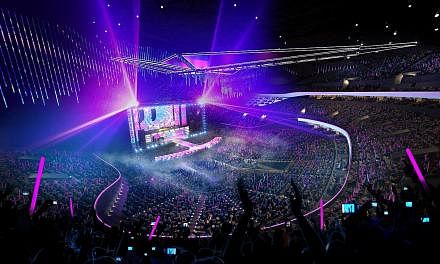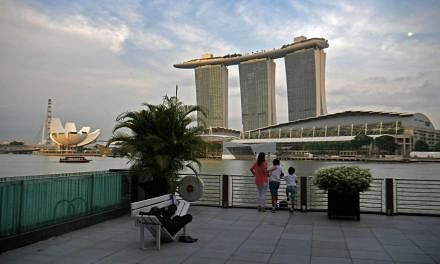SINGAPORE - It is a longstanding policy for the Government to allocate land directly to investors when there are "substantial investments that can benefit our economy and workers", said Senior Minister of State for Trade and Industry Chee Hong Tat in Parliament on Monday (May 6).
He made the point when explaining the lack of a tender process for the land awarded to Singapore's two integrated resort (IR) operators for their expansion plans.
Marina Bay Sands (MBS) will pay $1.3 billion for a 33,000 sq m land parcel - equivalent to more than four football fields, he said. This will be the site of its upcoming fourth tower.
Resorts World Sentosa (RWS) has also set aside a budget of $1 billion to intensify its current land holdings and buy an additional 10,000 sq m of land, he added.
The sums are based on fair market value and determined by the country's chief valuer according to market conditions and established valuation principles, he said.
Mr Chee was replying to Mr Gan Thiam Poh (Ang Mo Kio GRC) and Non-Constituency MP Daniel Goh who had asked how land is allotted to the IRs for their expansion plans.
Last month, the Government disclosed their expansion plans when announcing that it was extending the exclusivity period for the casinos at MBS and RWS to operate until the end of 2030.
The direct allotment of land was an issue noted by Assistant Professor Lee Kah-Wee, an associate director of the Master of Urban Planning programme at the National University of Singapore.
Dr Lee, who authored the book Las Vegas In Singapore, wrote on Facebook that the move was a rare form of "direct alienation", in which land was transferred to the resorts without undergoing land tendering processes typically done in other sales of government land to private entities.
Mr Chee, elaborating on the longstanding policy, said it had been extended to both local and foreign companies across different industries.
The additional $9 billion investment pledged by the two IRs is expected to draw 500,000 more visitors to Singapore and contribute $500 million to the economy each year, he said.
This will also directly create up to 5,000 new jobs and more business opportunities for Singapore companies.
Both IRs are also allowed to expand their gaming areas by 2,000 sq m for MBS and 500 sq m for RWS, although they have yet to decide whether to expand their gaming areas.
If they do, the resort operators will have to pay extra costs to be determined by the chief valuer, said Mr Chee.
Even if they exercise this option in full, the proportion of total floor areas used for gaming to non-gaming will fall to 2.3 per cent from today's 3 per cent, he said, adding that casinos contribute around two-thirds of the total revenue for the IRs and make it commercially viable for them to offer the non-gaming facilities as one integrated package.
Mr Chee, replying to Prof Goh, said the option for the additional gaming areas were needed, as without them, the operators may not find it viable to expand and build the expensive new facilities, such as the new theme park areas at RWS and a new entertainment arena at MBS.
He added, quoting MBS chief executive George Tanasijevich: "The casino revenue generation is very important because it pays for things that sometimes costs money, sometimes have a very low return or are just very expensive."
